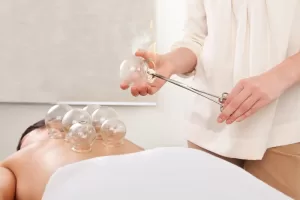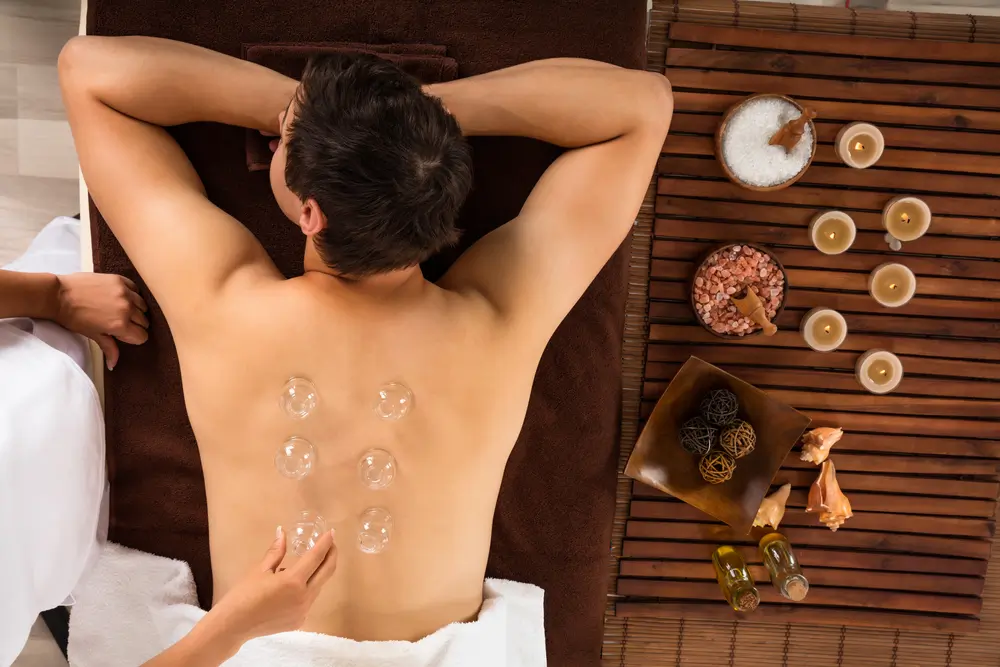Does cupping work?
Keeping an open mind about alternative treatments like cupping
Western medicine is traditionally slow to adopt new ideas and there are some notable examples where effective alternative treatments have been ignored by conventional doctors because of a reticence to accept a “different” way of doing things.
One such is example is Artesunate (Artesemesin) for the treatment of severe malaria infection. The Chinese developed this medication in the 1960’s and 70’s but the rest of the world (led by the US), dubious of Chinese methodology, largely ignored the evidence and it wasn’t until the late 1990’s that its efficacy became universally recognised. Who knows how many lives could have been saved?
So it’s with an open mind that conventional Western doctors should approach therapies that are new and alien to them.
What is Cupping?
- Usually cups are heated by burning substances within them, then applied to the skin of the patient.
- As they cool, the air inside them contracts and they “suck” onto the skin, leaving a bruise after they’re removed.
- It’s a treatment that’s been employed in various cultures for thousands of years.
- There are variations on the treatment such as “wet cupping” which involves cuts to the skin and bleeding, or the addition of acupuncture to the process.
What are the claimed benefits of cupping?
- Some claim that it can remove “toxins” from the body – this seems intuitively unlikely.
- Many therapists also claim that it is effective for shingles, Bell’s palsy (facial paralysis), cough, difficulty breathing, acne, lumbar disc herniation and cervical spondylosis.
Does Cupping Work?
- The simplest answer is: We don’t know.
- To date, the only research into the effectiveness of cupping has been done on small numbers of patients in poorly-controlled trials by people who were likely to be biased in their research.
- It would appear likely that cupping either doesn’t work or only has a small effect at best, but it’s very hard to say with any certainty.
- It would also appear that cupping is highly unlikely to cause any serious side-effects, so it’s probably relatively safe, causing just bruising or bleeding – though uncommonly it may lead to skin infections.
What is evidence-based medicine?
- Evidence-based medicine is the practice of seeking out the best available scientific data on health issues, then applying it to patient care.
- How it is applied to patient care must, however, have context. Medical care must be tailored to the patient’s individual beliefs and needs.
- And in the absence of reliable scientific data, the clinician should apply their best intuition, involving the patient in decision-making.
Getting a Mental Health Care Plan in Australia: Your Guide
Getting a Mental Health Care Plan in Australia: Your Guide Mental health matters—and if you’re feeling overwhelmed, anxious, or down, a mental health care plan can help. But what is it, and how do [...]
UTI Symptoms and Treatment: What You Need to Know
UTI Symptoms and Treatment: What You Need to Know Urinary Tract Infections (UTIs) are common, uncomfortable, and often disruptive. But what exactly are the signs to watch for, and how can you get relief [...]
Free Mental Health Care Plan Online | Bulk-Billed by Qoctor
Free Mental Health Care Plan Online | Bulk-Billed by Qoctor Discover how to get a free, bulk-billed Mental Health Care Plan (MHCP) in Australia through Qoctor's telehealth service. Accessing [...]






